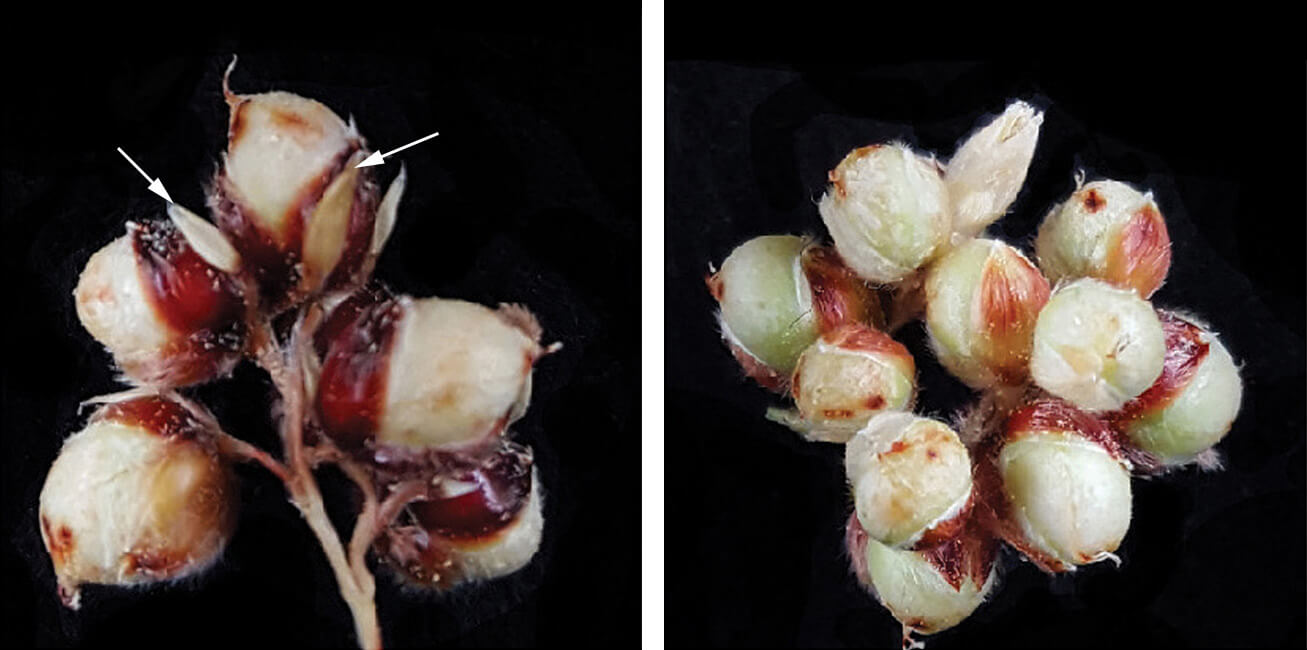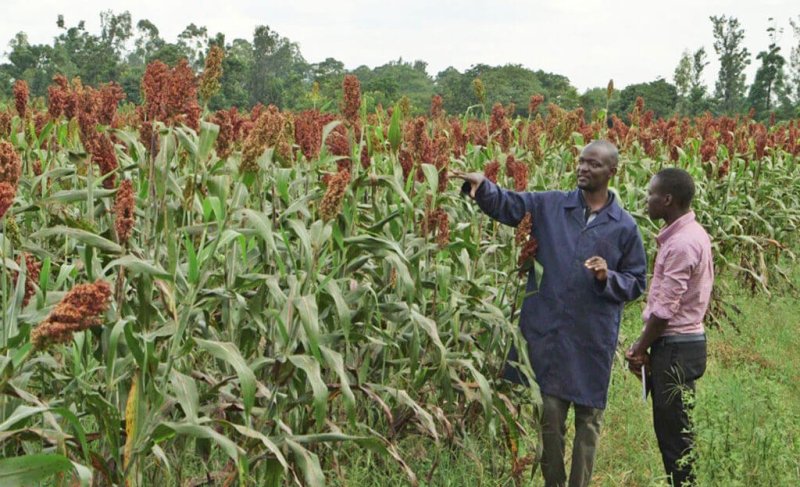A simple genetic modification can triple the grain number of sorghum, a drought-tolerant plant that is an important source of food, animal feed, and biofuel in many parts of the world. In new research reported today in Nature Communications, scientists at Cold Spring Harbor Laboratory (CSHL) have figured out how that genetic change boosts the plant’s yield: by lowering the level of a key hormone, generating more flowers and more seeds. Their discovery points toward a strategy for significantly increasing the yield of other grain crops.
…
An unknown genetic mutation introduced by chemical mutagenesis—a method used for many decades by breeders and researchers to induce genetic variations in plants—resulted in an increase in the number of grains, i.e., seeds contained within fruits, that each plant produced.
…
Now that the team has uncovered the biological changes that triple sorghum’s grain production, they hope to apply the same strategy to increase grain production in related plants that are vital in the global food supply, such as rice, corn, and wheat. The knowledge will help guide crop improvement through traditional breeding practices as well as approaches that take advantage of genome editing technologies….

Editor’s note: Read full study
Read full, original post: The secret to tripling the number of grains in sorghum and perhaps other staple crops































